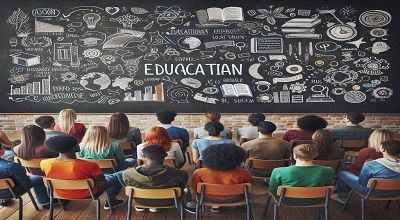Education and Returns
“Education and Returns” typically refers to the relationship between education (acquiring knowledge and skills through formal or informal learning) and the subsequent returns or benefits that individuals or societies derive from that education. Returns on education can be measured in various ways, including economic, social, and personal outcomes.
Economic Returns:
- Higher Income: One of the most commonly cited benefits of education is the potential for higher income. Generally, individuals with higher levels of education tend to earn more than those with lower levels.
- Employability: Education can enhance a person’s employability by providing them with specific skills and knowledge that are in demand in the labor market.
Social Returns:
- Improved Quality of Life: Education is often correlated with a better quality of life. Educated individuals may have better access to healthcare, housing, and other essential services.
- Civic Participation: Education can contribute to informed and active citizenship. Well-educated individuals may be more likely to participate in civic activities, vote, and engage in community service.
Personal Returns:
- Personal Development: Education is not only about acquiring job-related skills but also about personal development. It can broaden perspectives, enhance critical thinking, and improve problem-solving skills.
- Health and Well-being: Education is linked to better health outcomes. Educated individuals may adopt healthier lifestyles and have better access to healthcare.
National Returns:
- Economic Growth: A well-educated workforce can contribute to economic growth by fostering innovation, productivity, and competitiveness on a national level.
- Social Cohesion: Education can promote social cohesion by reducing inequality, fostering understanding among diverse groups, and promoting a sense of national identity.
Summary
It’s important to note that while education often leads to positive returns. The outcomes can vary based on factors such as the quality of education and the relevance of the skills acquired. The overall economic and social context. Additionally, the returns on education can extend beyond monetary gains to include aspects of personal fulfillment, and societal progress. And the overall well-being of individuals and communities.
